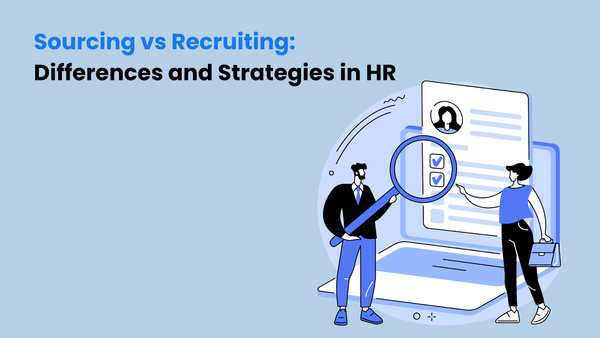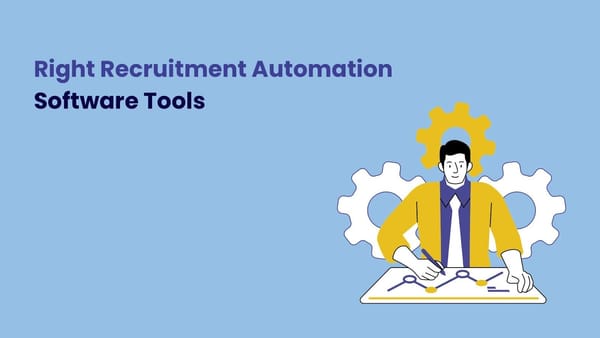Finding the right web developer for a startup is one of the most challenging parts of starting a new business. Your website plays an important role in establishing your brand, attracting customers, and supporting your services or products. However, locating skilled developers who can meet your startup's specific needs can be time-consuming and complex.
This article will guide you through the process of how to find web developers for startup in 2025. It aims to simplify your search, highlight essential skills, and share ways to make the hiring process effective. Understanding these points early will save both time and resources as you build your online presence.
In a Nutshell:
- Clearly define your startup's web development needs before starting the search to attract candidates with the right skills and experience.
- Look for developers with a balanced mix of technical skills and problem-solving ability to build functional and scalable websites.
- Communication skills and cultural fit are just as important as technical expertise to ensure smooth collaboration and project success.
- Follow a structured hiring process involving detailed job descriptions, multi-stage interviews, and proper contract negotiation to reduce hiring risks.
- Utilise AI-driven recruitment platforms like Tidyhire to streamline sourcing, speed up hiring, and engage qualified web developers efficiently.
Key Skills of Web Developers
The process of web development involves two main areas: front-end and back-end development. While the specific skills required for each may differ, there are core skills all web developers should possess for effective development.
- Problem-solving and Critical Thinking: Developers have the ability to spot issues and resolve them efficiently. These problems can range from ensuring website security to addressing compatibility across different browsers.
- Database Management: Web developers can write queries in both SQL and NoSQL databases. This skill is important when developing dynamic websites that rely on data storage and retrieval.
- Programming Languages: They use languages like HTML, CSS, and JavaScript to write clean, optimised code. The exact languages may vary depending on their area of expertise and project needs.
- Web Technologies: Web developers are knowledgeable about essential web technologies and development tools needed to build websites. They are also skilled in working with various web development frameworks to speed up the process and improve quality.
- APIs and Integrations: They have the skills to connect websites with external services using APIs. This makes websites more interactive and functional for users.
- Security: Protecting user data and preventing vulnerabilities is a key responsibility. Developers follow standard security measures to guard against threats like SQL injections or cross-site scripting attacks.
- Content Management Systems (CMS): There are many developers who are proficient with popular CMS platforms such as WordPress and Drupal. Mastering these tools helps them manage and build websites more efficiently.
- DevOps: Developers use DevOps practises to automate routine tasks and improve efficiency. This allows them more time to focus on enhancing website performance.
- Version Control Systems: By using systems like Git, developers collaborate better with others. It also enables them to track changes and revert code when necessary.
- With these skills, web developers can create strong, well-functioning websites that align with your vision. Their expertise in the web development technology stack makes them crucial for any development effort.
These skills enable web developers to create beautiful and robust websites that reflect your vision.
Next, let’s walk through the steps you should follow to find the right web developer for your startup.
Also read: Full Cycle Recruiting: Key Steps and Benefits
How to Find a Web Developer for Your Startup?
Finding the right web developer is essential for your startup's growth and project success. This step-by-step guide will help you find web developers for startup who match your technical needs and team dynamics.
Step 1: Define Your Project Needs
Start by outlining your startup's specific website requirements. Do you need an e-commerce platform, a content management system, or a portfolio site? Be clear about features, design needs, and technology preferences. This clarity will guide your search and help attract candidates with the right expertise.
- Scope: Determine the features and functions your website needs.
- Technology Stack: Choose the technologies you want to use, for example, React for the frontend or JavaScript for backend programming.
- Budget: Set a realistic budget for development costs.
- Timeline: Establish the timeline for development and launch.
Knowing these details makes it easier to find a developer who can meet your project demands.
Step 2: Prepare a Detailed Job Description
Craft a clear job description specifying required technical skills, experience level, and any industry-related knowledge. Mention expected responsibilities, project timelines, and whether the role is full-time, part-time, or freelance. A well-structured job post reduces unqualified applications and sets expectations early. Include the following:
- Role Overview: Briefly describe your startup and the web developer's role.
- Responsibilities: List the tasks the developer will be responsible for handling.
- Required Skills: Specify the technical skills needed, such as proficiency in JavaScript or experience with the given frameworks.
- Preferred Experience: Note any additional qualifications that would be an asset.
- Work Environment: Explain your team structure and remote work possibilities.
A well-written job description narrows the field to candidates who fit your needs.
Step 3: Explore the Hiring Resources
Use multiple channels to find potential web developers:
- Online Job Boards: LinkedIn, Indeed, Glassdoor, and niche tech boards.
- Freelance Platforms: Upwork, Freelancer, Toptal for contract or freelance talent.
- Professional Networks: LinkedIn, GitHub, and developer communities.
- Local Events: Attend tech meetups, networking events, or conferences in the UAE.
Broadening recruitment methods increases the chance of finding skilled developers.
Step 4: Evaluate Developers' Skills and Experience
Carefully review candidates' backgrounds:
- Portfolio Review: Check previous projects for quality and relevance.
- Technical Tests: Assess coding and problem-solving abilities.
- References: Contact former employers or clients for feedback.
- GitHub or Project Repositories: View code samples and contributions.
Validating skills and experience helps you shortlist the right candidates.
Step 5: Interview the Shortlisted Candidates
Review resumes, portfolios, and past projects carefully. Look for developers who demonstrate experience with technologies relevant to your needs and have worked on startup projects or similar industry sectors. Check client feedback or references if available. Conduct interviews focused on both technical and interpersonal qualities:
- Technical Interview: Test problem-solving, coding skills, and technology knowledge.
- Behavioural Interview: Evaluate communication skills, teamwork, and cultural fit.
- Project Discussion: Talk through how candidates would approach your startup's project challenges.
Interviews ensure candidates are a suitable fit for both the role and your startup's culture.
Step 6: Negotiate Contract and Compensation
Once you select the preferred candidate, clearly agree on contract terms covering payment schedules, project milestones, confidentiality agreements, and intellectual property rights.
- Contract Details: Define project scope, deliverables, deadlines, and payment structure.
- Compensation: Offer fair pay based on market rates and developer experience.
- Milestones: Set checkpoints with linked payments for accountability.
Clear agreements help build a constructive working relationship.
Step 7: Onboard the Developer
Set up tools, access to resources, and introduce the developer to your team workflow. Smooth onboarding ensures a quick start:
- Documentation: Provide comprehensive project materials and access to necessary tools.
- Communication: Set up channels like Slack or email and project management tools.
- Team Introduction: Bring the developer into team discussions and share the company culture.
- Regular Check-Ins: Establish a feedback loop to address issues promptly.
Effective onboarding gets your web developer aligned with your startup's goals quickly. Following these steps will help you find the right web developer who can contribute effectively to your startup's growth.
Also read: 10 Tips To Optimise Your Recruitment Process
With the hiring process mapped out, here’s why investing in a web developer brings measurable advantages to your startup.
Advantages for Startups of Hiring a Web Developer
Hiring a professional web developer brings many benefits that are key to your startup's growth and online success. Here are some of the main advantages:
- Custom Website Design
A web developer creates a website tailored specifically to your brand and business needs. Unlike generic templates, a custom design reflects your identity and offers unique features that appeal to your target audience. This personalised approach helps build a strong online presence and better user engagement.
- Faster Development Times
Experienced developers can complete your website faster because they use industry best practises and tools. A quicker launch means your startup can start reaching customers and making sales sooner. Skilled developers also respond effectively to feedback, enabling fast updates and improvements.
- Better Website Performance
Professional developers optimise sites to load quickly and function smoothly across all devices. Website speed and reliability are crucial for keeping visitors engaged and reducing bounce rates. Reliable performance also contributes to higher search engine rankings, which improves your site's visibility.
- SEO-Friendly Website
Developers understand search engine optimisation (SEO) basics and build sites that help attract organic traffic. They ensure correct HTML structure, fast loading speed, mobile friendliness, and proper use of keywords, making your website more discoverable to potential customers through search engines.
- Scalability
Web developers design websites with growth in mind. They build scalable systems that can handle increasing traffic or additional features as your startup expands. This avoids the need for costly redesigns or rebuilds later.
- Security Enhancements
Protecting your website and user data is important. Developers implement security best practises to defend against common threats such as hacking, data leaks, and malware. This safeguards your brand reputation and builds customer trust.
- Ongoing Support and Maintenance
A good developer provides regular website updates, bug fixes, and technical support. This ensures your website stays updated with the latest technologies and performs well over time. Maintenance also prevents downtime and security vulnerabilities.
- Cost Efficiency
Though hiring a professional costs upfront, it saves money long-term by reducing errors and rework. Developers do the job right the first time, avoiding issues that could cause lost revenue or expensive fixes. Compared to DIY or inexperienced hires, professional developers offer better value for your investment.
The benefits outlined show that investing in the right web developer brings greater efficiency, improved user experience, and stronger business outcomes. This makes hiring a skilled developer a strategic step for startups aiming to succeed online.
As you look at developers, keep in mind the key factors that make for a successful hiring process and long-term team fit.
Key Things to Keep in Mind When Hiring a Web Development Team
Hiring web developers for your startup requires careful attention to several important factors. These considerations will help you avoid common mistakes and build a strong, effective team.
- Technical Proficiency
Make sure candidates have the right technical skills that match your project's technology stack. This can be verified through coding tests, portfolio reviews, or demonstrations of previous projects. Choosing developers with the right expertise reduces the risk of delays and ensures projects are completed to high standards.
- Experience with Startups
Developers familiar with startup environments tend to adapt well to fast-paced work and limited resources. They understand the need for flexibility and can efficiently handle changing priorities. Such experience helps them collaborate effectively with small teams and contribute to rapid product development.
- Communication Skills
Clear communication is vital, especially if your team collaborates remotely or across departments. Developers need to explain technical issues in simple terms and understand your business needs. Strong communication facilitates smoother workflows, reduces misunderstandings, and improves teamwork.
- Cultural Fit
Hiring someone whose values and work style align with your startup's culture makes a difference. A good cultural fit promotes positive collaboration, motivation, and long-term retention. Consider how candidates interact with your team and whether they embrace your startup's vision and pace.
- Availability and Commitment
Confirm that candidates can commit to your project deadlines and work schedules. This is especially important for startups operating under tight timelines. Ensure their availability matches your needs, whether full-time, part-time, or freelance.
- Problem-Solving Mindset
Look for developers who approach challenges creatively and proactively. Startups often face unique problems requiring adaptive thinking. Developers with strong problem-solving skills can troubleshoot issues independently and suggest improvements.
- References and Reputation
Check feedback from previous employers or clients to evaluate candidates' reliability and professionalism. Positive references give confidence in their work ethic and ability to deliver on promises. It's an essential step to avoid hiring risks.
By focusing on these seven criteria, you increase the likelihood of building a capable and cohesive web development team. This preparation ultimately supports your startup's success by ensuring development projects proceed smoothly and effectively.
After you’ve clarified what you need and whom you should hire, the next step is selecting the developer type best suited to your startup’s current and future goals.
Choosing the Right Type of Web Developer for Your Needs
Between 2024 and 2034, the Bureau of Labor Statistics projects web developer employment to grow by 7%, faster than average. Choosing the right developer type is essential and depends on your startup's specific needs and project scope. Here are six common types to consider:
- Front-end Developer
This developer focuses on the website's design and user experience. By using HTML, CSS, and JavaScript frameworks, they ensure that your site looks appealing and functions well on all devices. Front-end developers craft what users see and interact with, ensuring usability and responsiveness.
- Back-end Developer
Back-end developers handle the server side of your website. They manage databases, server logic, and APIs, enabling data processing and the website's core functions. They make sure everything behind the scenes works smoothly, from user authentication to data storage.
- Full-stack Developer
Full-stack developers combine front-end and back-end skills. They are versatile professionals who handle all aspects of website creation, from building user interfaces to managing server operations. Startups often prefer full-stack developers because they can cover multiple areas, which saves cost and improves communication.
- UI/UX Developer
Focusing on design and user flow, UI/UX developers improve navigation, accessibility, and overall visual appeal. They ensure that the website is intuitive and easy to use. This role is crucial for creating engaging user experiences and reducing bounce rates.
- Mobile Web Developer
With mobile usage high in the UAE, mobile web developers specialise in making websites perform flawlessly on smartphones and tablets. They optimise loading speed, responsiveness, and compatibility across mobile platforms, which is vital for reaching users on the go.
- Web Developers with SEO Knowledge
Developers trained in SEO build websites with search optimisation in mind from the start. This reduces future marketing costs by helping your site rank higher in search results. They apply best practises such as fast page loads, mobile optimisation, and semantic markup.
Selecting the right developer depends on your startup's current priorities and long-term plans. For early-stage startups needing flexibility, a full-stack developer provides a great balance of skills and adaptability. However, as your project grows, you may require a combination of developers specialising in front-end, back-end, UI/UX, mobile, or SEO.
In larger and more complex projects, clear roles are often essential to a successful collaboration. This approach ensures each developer focuses on their specialty, improving efficiency and quality.
Understanding these developer types helps you align your recruitment efforts with project demands. This clarity supports smoother workflows and better outcomes for your startup. With your developer types identified, let’s examine the communication skills that are vital for team success.
Also read: Top 10 Hiring Hacks to Improve Your Hiring Process
The Communication Skills Needed to Be Successful
While technical expertise is important, communication skills are equally vital for project success. Web developers need strong communication abilities to collaborate effectively with teams, clients, and stakeholders.
- Active Listening: Understanding client requirements and team needs completely before beginning any development work. This prevents costly mistakes and ensures the final product meets expectations.
- Clear Verbal Communication: Explaining complex technical concepts in simple, non-technical terms that stakeholders can understand. This skill helps bridge the gap between technical teams and business decision-makers.
- Written Communication: Documenting code changes, project progress, and issues clearly through emails, project management tools, or documentation platforms. Well-written records keep everyone informed and aligned.
- Constructive Feedback: The ability to provide and receive positive feedback that improves code quality and team collaboration. This includes suggesting improvements and accepting criticism professionally.
Strong communication skills help reduce misunderstandings, prevent project delays, and improve overall team productivity. These abilities are especially important when working remotely or collaborating across different departments within your startup.
Let’s discover how Tidyhire can help you quickly find web developers with both technical and communication skills.
How to Quickly Find Web Developers with Tidyhire
Finding skilled web developers can be time-consuming and challenging for startups. Tidyhire is an AI-driven recruitment platform that simplifies this process by automating candidate sourcing and communication. The platform provides access to millions of candidate profiles and offers powerful tools for personalised outreach and follow-ups.
With Tidyhire, you can:
- Search Across Extensive Databases: Access over 700 million profiles to find web developers who match your specific technical requirements and experience levels. It is easier to find the right candidate quickly when you have access to such a large talent pool.
- Retrieve Verified Contact Information: Automatically obtain accurate email addresses and phone numbers, eliminating the manual work of hunting for contact details across different platforms.
- Use AI-Powered Communication: Send personalised messages using intelligent templates that adapt to each candidate's background, significantly improving response rates and engagement.
- Integrate with Existing Tools: Connect seamlessly with platforms like Slack and Microsoft Teams to maintain smooth collaboration within your hiring team and keep everyone updated on recruitment progress.
- Access Real-Time Analytics: Receive daily reports with data-driven insights about your recruitment campaigns, helping you track progress and optimise your hiring strategy.
- Benefit from RIA Technology: Work with Tidyhire's Recruiting Intelligence Agent to automate candidate interactions and screening processes, reducing the time spent on initial evaluations.
For startups operating with limited resources and tight deadlines, Tidyhire offers significant advantages. The platform saves valuable time by reducing manual sourcing efforts while maintaining candidate quality. Instead of spending hours searching through profiles manually, you can focus on evaluating qualified candidates and making informed hiring decisions.
Rather than spending time on long recruitment processes, Tidyhire helps startups build their web development teams efficiently.
Conclusion
To find the right web developer for your startup, you must plan well and be aware of what you need. By focusing on specific skills and following a structured hiring process, you can identify candidates who will build your website efficiently and reliably.
Hiring the right developer brings many benefits, including faster launch times, better website performance, and ongoing support. Strong communication and a good cultural fit further increase project success. Tools like Tidyhire offer startups an effective way to find and engage developers quickly, allowing you to focus on growing your business.
If you want to reduce hiring time and access qualified web developers easily, book a call to see how Tidyhire can improve your recruitment process.
FAQs
What is the best platform to find web developers for startups in the UAE?
Platforms like LinkedIn, Upwork, Toptal, and AI-driven platforms like Tidyhire are popular and reliable for sourcing web developers in the UAE.
How long does it typically take to hire a web developer for a startup?
You can hire anywhere from a few weeks to several months, depending on your preparation, your hiring channels, and the specificity of the requirements.
Should startups hire full-stack developers or specialists?
Startups often benefit from hiring full-stack developers initially due to their versatility, but specialist roles might be needed as the project grows.
What communication skills are important for web developers?
Active listening, clear verbal and written communication, plus constructive feedback are key to ensuring smooth collaboration and project success.
How does Tidyhire improve the recruitment process for startups?
Tidyhire automates candidate sourcing, personalises outreach, and provides comprehensive data insights, saving time and improving hiring quality.






